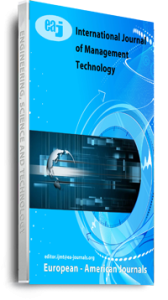Advances in technologies have allowed service providers to incorporate many different technologies into the delivery of their services to improve their competitiveness and performance. The study focused on establishing determinants that influence consumer towards the usage of self-service banking technologies. It is believed that the successful usage of self-service banking technologies will be cost and convenience beneficial for all stakeholders in the financial sector enhance improving their performance. The research model purposes an extension to the technology acceptance models and the Unified theory of acceptance and use of technology that will represents a shift from fragmented view of information technology acceptance to a unified integrated single theory that will account for use of self service banking technology. The target population for the study was users of selected commercial banks in Kenya, utilizing a sample size of 325 respondents. Reliability and validity of the data collection instrument was tested using Crobach Alpha and Average Variance Extracted respectively. Descriptive and inferential statistical data analysis was carried out while regression analysis was used to predict the effect of selected determinants of self-service banking technology on its usage. The domains in which subjects were tested for were ease of use, facilitating condition, need for interaction, and perceived risk. The domains were significantly associated with use of self service banking technology exception of ease of use. Taking into account the importance of innovation and technological advancement studies should be carried to establish the effect of technological usage and organization commitment on firm performance.
Keywords: Kenya, Self-service, Self-service banking technology, Use of Self-service banking technology

